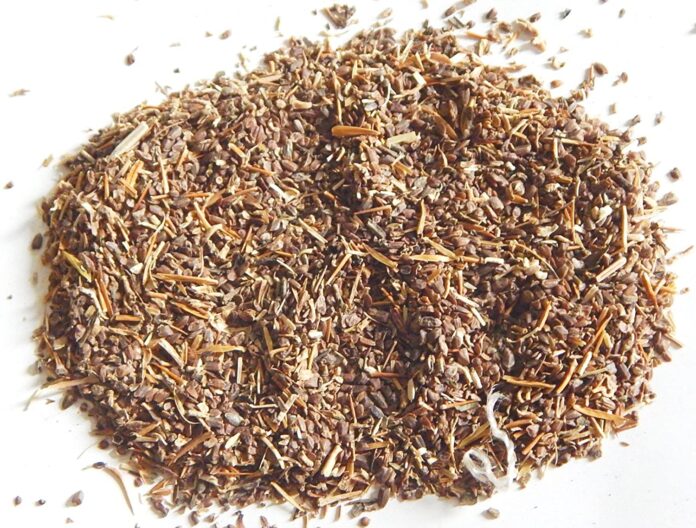
Introduction
Hygrophila seeds, commonly known as Tukhm-e-Talmakhana in traditional medicine, have been recognized for centuries in various cultures for their health benefits. These tiny, mucilaginous seeds belong to the Hygrophila species, which is a genus of plants found in tropical regions, especially in Asia. The seeds are often used in Ayurvedic and Unani medicine due to their numerous therapeutic properties.
Forms of Hygrophila Seeds
Hygrophila seeds are most commonly consumed in their raw or powdered form, but they can also be found in tinctures, oils, and capsules. Here are the common forms in which these seeds are used:
Raw Seeds: These are directly consumed, often soaked in water or added to drinks for their cooling and therapeutic effects.
Powder: Hygrophila seeds are ground into powder and mixed with other herbal ingredients to make health-promoting concoctions.
Tinctures and Extracts: Concentrated forms of Hygrophila seeds are prepared by soaking the seeds in alcohol or other solvents to extract their active compounds.
Capsules/Tablets: Hygrophila seed extracts are often encapsulated for easy consumption, especially in supplement form.
Oil: The seeds can be pressed to produce oils that are used topically or consumed for their health benefits.
Benefits of Hygrophila Seeds
Hygrophila seeds are known for their wide range of health benefits, particularly in managing various ailments. Below are some of the most prominent advantages:

Digestive Health:
Tukhm-e-Talmakhana is known for its ability to soothe and support the digestive system. The seeds are rich in mucilage, a gel-like substance that helps in lubricating the intestines, promoting smoother bowel movements, and preventing constipation.
It also supports overall digestion by reducing inflammation and aiding in the breakdown of food.
Cooling Effect:
In traditional medicine, Hygrophila seeds are considered to have a cooling effect on the body. They are often used to reduce excessive body heat, making them ideal for conditions like fever, irritability, and inflammation.
The cooling properties make them beneficial in managing conditions such as skin rashes, acne, and other heat-related issues.
Hydration and Skin Health:
These seeds help in maintaining hydration in the body. The mucilage they release when soaked in water helps in replenishing fluids, making it especially beneficial during hot weather or in cases of dehydration.
The seeds are also commonly used in treating dry skin, rashes, and other dermatological problems due to their ability to soothe and moisturize the skin.
Weight Loss:
Hygrophila seeds are known to be beneficial for those seeking weight loss. They contain fiber and mucilage, which can promote a feeling of fullness and curb excessive hunger. The mucilage slows down the digestive process, leading to better absorption of nutrients and a reduced appetite.
Detoxification:
The seeds are also believed to have detoxifying effects. They help in flushing out toxins from the body by promoting regular bowel movements and improving kidney and liver function.
Their mild diuretic properties also assist in the elimination of waste products, reducing bloating and water retention.
Relief from Joint and Muscle Pain:
Due to their anti-inflammatory properties, Hygrophila seeds are sometimes used to reduce pain and inflammation associated with arthritis and muscle aches.
Improved Sleep:
Consuming Hygrophila seeds before bedtime is said to have a calming effect, promoting better sleep. This is due to their ability to relax the nervous system and reduce stress and anxiety.
Side Effects of Hygrophila Seeds
While Hygrophila seeds offer numerous health benefits, they should be used with caution, as excessive consumption or misuse can lead to side effects. Some of the potential side effects include:
Gastrointestinal Issues:

In some cases, consuming large quantities of Hygrophila seeds may lead to bloating, diarrhea, or discomfort in the stomach. The high fiber content and mucilage can be overwhelming for the digestive system if taken in excess.
Allergic Reactions:
Some individuals may experience allergic reactions to Hygrophila seeds. Symptoms can include itching, skin rash, or swelling. People with allergies to plants in the Acanthaceae family, to which Hygrophila belongs, should exercise caution.
Interference with Medications:
There is limited research on the interaction between Hygrophila seeds and pharmaceutical drugs. As with many herbs, it is always advisable to consult a healthcare professional before incorporating them into your routine, especially if you are on medication for conditions like blood pressure, diabetes, or heart disease.
Pregnancy and Breastfeeding:
Pregnant and breastfeeding women should avoid using Hygrophila seeds without consulting a healthcare provider. Although there are no specific studies on the safety of these seeds during pregnancy, it is generally recommended to err on the side of caution.
Overhydration:
Because the seeds can absorb a significant amount of water, consuming excessive amounts of these seeds without adequate water intake may lead to dehydration or a feeling of being overly full.
This Article is for Basic Information. Contact a professional doctor before using it.
HAKEEM KARAMAT ULLAH
+923090560000




